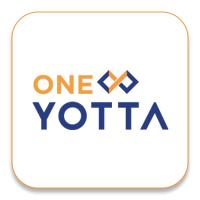Ensuring data security and meeting regulatory compliance standards is essential for businesses to protect their operations and reputation. Colocation data centers have emerged as critical partners, providing a secure and compliant environment for housing IT infrastructure. This article explores how colocation data centers in India ensure data security and compliance, highlighting their role in safeguarding sensitive information and meeting stringent regulatory requirements.
Colocation data centers, often referred to as “colos,” are third-party facilities where businesses can rent space to house their servers, networking equipment, and other IT infrastructure. These centers offer several advantages, including cost savings, scalability, and enhanced security measures.
Physical Security
One of the fundamental ways colocation data centers ensure data security is through physical security measures. Colocation providers implement stringent security protocols to prevent unauthorised access to their facilities. These measures include:
1. 24/7 Surveillance: Continuous monitoring using CCTV cameras to keep an eye on all activities within the data center premises.
2. Biometric Access Control: Advanced biometric systems such as fingerprint or retina scanners to restrict access to authorized personnel only.
3. Security Personnel: Trained security guards present on-site around the clock to manage access and respond to any security incidents.
Advanced Cybersecurity
In addition to physical security, colocation data centers in India employ advanced cybersecurity protocols to protect data from digital threats. Some key cybersecurity measures include:
1. Firewalls and Intrusion Detection Systems (IDS): Firewalls block unauthorised access, while IDS monitors network traffic for suspicious activities.
2. Encryption: Data is encrypted both in transit and at rest, ensuring that even if data is intercepted, it cannot be read without the decryption key.
3. Regular Security Audits: Frequent security audits and vulnerability assessments to identify and mitigate potential weaknesses in the system.
Compliance with Regulatory Standards
India has a stringent regulatory landscape concerning data security and privacy. Colocation data centers ensure compliance with these regulations, which is crucial for businesses to avoid legal penalties and reputational damage. Key regulations include:
1. Information Technology (IT) Act, 2000: This act provides a legal framework for electronic governance and defines offenses related to cybersecurity. Colocation data centers must ensure that they comply with the IT Act’s provisions, including data protection and privacy requirements.
2. Personal Data Protection Bill (PDPB): Although still under consideration, the PDPB aims to provide a robust data protection framework in India. Colocation providers are preparing to align with its requirements, such as obtaining explicit consent for data processing and ensuring data localization.
3. RBI Guidelines: Financial institutions in India must comply with the Reserve Bank of India’s (RBI) guidelines on data storage and security. Colocation data centers serving the financial sector must adhere to these stringent requirements.
Disaster Recovery and Business Continuity
Colocation data centers also play a crucial role in disaster recovery and business continuity planning. They offer reliable infrastructure and redundancy to ensure that businesses can quickly recover from disruptions. Key features include:
1. Backup Power Supply: Uninterrupted power supply (UPS) systems and backup generators to keep the data center operational during power outages.
2. Redundant Network Connections: Multiple internet connections and network paths to ensure connectivity even if one link fails.
3. Data Backup Solutions: Regular data backups stored in geographically dispersed locations to protect against data loss due to natural disasters or cyber-attacks.
Expertise and Support
Colocation data centers in India employ highly skilled IT professionals who manage and monitor the infrastructure. This expertise ensures that any security or compliance issues are promptly addressed. Yotta data centers are known for their state-of-the-art facilities and comprehensive support services. Yotta employs a team of dedicated IT professionals who monitor and manage security systems around the clock, ensuring the highest levels of data protection.
Yotta helps businesses navigate the complex regulatory landscape in India, ensuring compliance with laws and sector-specific regulations. Yotta’s incident response teams are equipped to handle security breaches promptly, minimising downtime and data loss. With Yotta’s hyperscale data centers, businesses can focus on their core operations while trusting that their data is secure and compliant with all necessary regulations.













